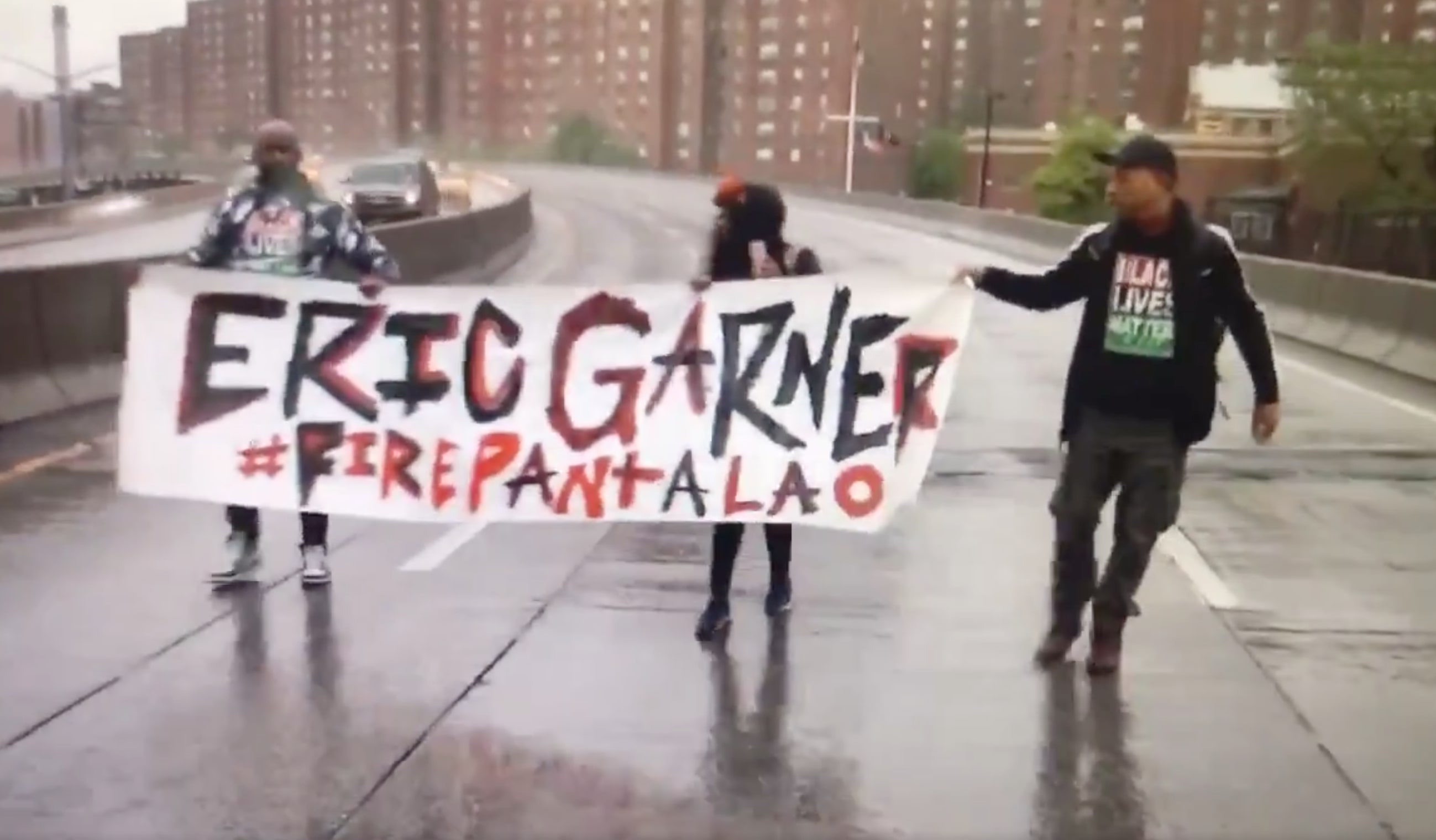Eric Garner's family sobbed uncontrollably in the courtroom today as protesters across New York City came out in force to commemorate the first day of the departmental trial for New York Police Department Officer Daniel Pantaleo.
#EricGarner Black life matters protesters stoping traffic on the FDR highway, standing up against what they are calling police injustice. pic.twitter.com/1HiMhzmDNc
— Marvin Hoffman (@theeye74) May 13, 2019
Pantaleo is the officer who infamously placed his arm around Garner's neck as he screamed, "I can't breathe." Garner's death caused protests across the country and led to calls for greater police accountability.
Those calls have largely fallen on deaf ears, as a grand jury declined to even indict Pantaleo and the Department of Justice has waffled for years on whether to charge him with civil rights violations.
The NYPD departmental trial has become one of the only ways the Garner family believes it can get justice. Unfortunately, many believe the most severe punishment will involve Deputy Commissioner Rosemarie Maldonado recommend to Police Commissioner James O’Neill that Pantaleo should be fired or lose vacation days
"They've tried every trick in the book to keep the case from going forward. We've all seen Eric being murdered on video. It wasn't just me, it wasn't just an eyewitness," Gwen Carr said during a protest outside of the police precinct where the trial is being held.
"It was all of us who've seen Eric being murdered on camera."
In his opening statement, Civilian Complaint Review Board prosecutor Jonathan Fogel said pointedly, "He was given a death sentence over a cigarette. He wasn’t selling anything.”
“Instead of giving him aid, Officer Pantaleo buries this helpless man’s head in the pavement, pushes his faces into the ground, indifferent to his cries for help,” he added.
The 33-year-old Pantaleo and Sergeant Kizzy Adonis approached Garner in 2014 outside of a store in Staten Island. Garner was selling loose cigarettes during a time in New York City when police officials were touting a "broken windows" theory of policing.
Garner believed he was being harassed before Pantaleo put his arm around his neck and forced him to the ground. Pantaleo keeps his arm around Garner's neck as he screams, pushing his head against the concrete repeatedly.
The city's medical examiner’s Officer said Garner’s death was a homicide, writing after an autopsy that he died after “compression of neck (chokehold), compression of chest and prone positioning during physical restraint by police.”
Pantaleo's lawyers say Garner was overweight and that Pantaleo used a technique that the NYPD explicitly taught its officers to use. The city banned police officers from using chokeholds in 1993 because the number of police-related deaths were skyrocketing. Despite the ban, the chokehold was used repeatedly by officers, particularly in communities of color.
To make matters worse, New York Police Commissioner Bill Bratton created an exception for the chokehold to be used in certain circumstances two years after Garner's death. Police officers continue to use chokeholds to this day. There have been over 250 allegations of it being used from 2017 to 2018
The NYPD decided to charge Pantaleo last year after waiting for the U.S. Justice Department to make a decision on whether they will charge him. They still have not made their decision. Pantaleo has been on desk duty since Garner's death.
“Understandably, members of the public in general and the Garner family, in particular, have grown impatient with the fact that NYPD has not proceeded with our disciplinary proceedings, and they have difficulty comprehending a decision to defer to a federal criminal investigation that seems to have no end in sight,” Lawrence Byrne, deputy commissioner of legal matters, wrote last year.
Black Lives Matter Greater New York protesters shut down parts of the FDR highway on Monday morning to mark the start of the trial.
Protestors shut down NYC’s #fdr on the first day of Officer #DanielPantaleo’s trial… in #EricGarner’s name! (The revolution will be socialized!) pic.twitter.com/y3UhfgaiBb
— Anecdote Magazine (@theanecdotemag) May 13, 2019
Garner was a beloved father of six. One of his daughters, Erica Garner, fought and protested ardently for years hoping the officers involved in his death would face some punishment. Tragically, She died of a heart attack in 2017.
Despite never finding anyone responsible for Garner's death, the city paid his family $5.9 million in 2015.
Now, check out these stories:
Exclusive: Blavity Publishes Erica Garner's Final Essay On Her Relentless Fight For Justice
The Death Of Erica Garner Teaches Why Violence Against The Black Community Still Needs Our Attention
The Family Of Eric Garner Granted $4 Million Payment By The City
